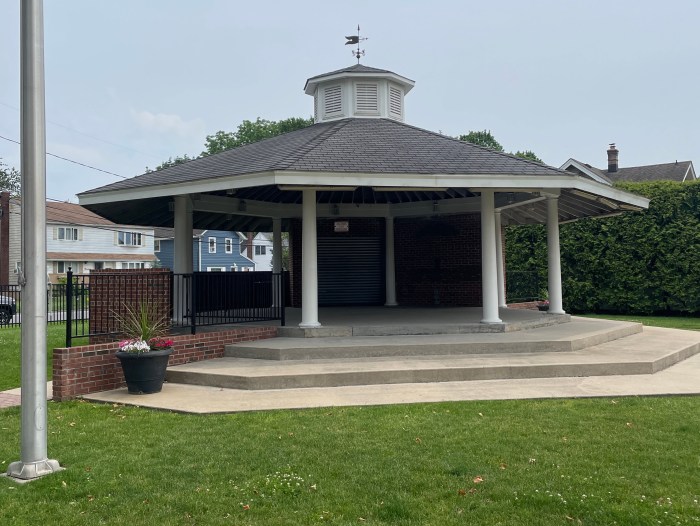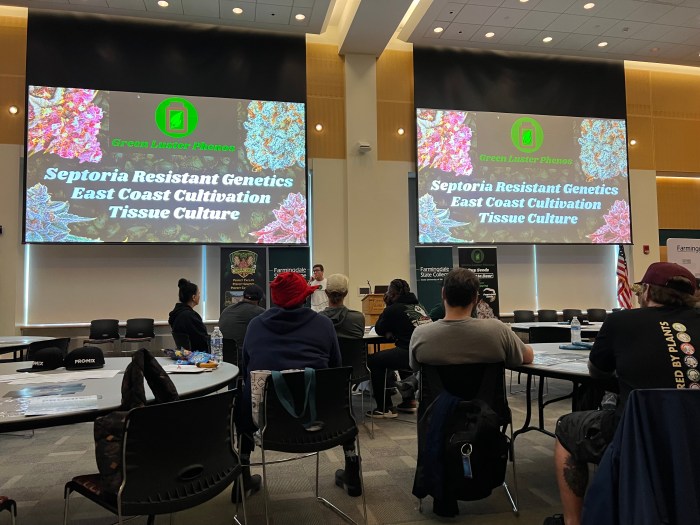The same questions were asked of both candidates running for Oyster Bay Town Supervisor, which is a two-year term. Incumbent John Venditto is running on the Republican, Conservative and Working Families Party lines. Challenger Keith Scalia is running on the Democratic Party line. Election day is Tuesday, Nov. 3. Their stories appear below in alphabetical order.
Keith Scalia
Massapequa resident Keith Scalia is a volunteer firefighter and an adjunct professor of philosophy at LaGuardia Community College. He and his wife Jennifer are the parents of Cassandra and Logan.
On creating councilmatic districts rather than at-large districts, he said, “There are definitely merits to both. A benefit of the at-large system is that the councilperson needs to look out for the good of the town as a whole, rather than at something that will benefit solely their district. And, if voters do not like how the at-large council is voting, they can vote out half the board every two years.
“However, in these tough financial times, very few residents actually have the time to attend board meetings. Moreover, the Oyster Bay Town Clerk’s Office never releases how the board voted without going through the red tape and inconvenience of a FOIL request. Furthermore, residents have to go to the clerk’s office to get a copy of the agenda (which is rarely available until a few hours before the meeting), thus leaving no time to prepare to speak or warn their neighbors of something that will affect them.
“After walking door-to-door in East Massapequa the last three years, I can tell you that people there feel they have no representation. Their streets rarely get repaved or swept, they are always the last neighborhood to get plowed, and when they call town hall, their messages are rarely returned. People in the central and northern portions of the Town feel as if they get slighted, as the majority of the spending seems to be funneled to Massapequa. Because of this, councilmatic districts seem like a logical choice.
“If the town went councilmatic, the Democrats would have an easier time picking up a seat or two on the board. I don’t think this should be left up to the politicians though. The decision should be made by the voters in a referendum.”
On the Special District/Village Dissolution Law he said, “As a volunteer fireman, I am not in favor of the consolidation of fire districts. Residents take pride in their local departments and take comfort in that it is their neighbors who are responding to their crisis.
“I understand the concern of village residents, that their village may lose its charm and identity. Also people like the fact that they can call their own local water district. As a teacher in NYC schools, I also believe that residents would be really unhappy if their school districts were consolidated.
“However, there are entirely too many overlapping and duplicative services in the TOB and Nassau County as a whole. Many of them are political fiefdoms where unchecked spending benefits the commissioners, the lawyers, and ‘the connected.’ We need transparency to hold commissioners accountable for all expenses and for their perks. I think the state did what was needed as it leaves the ultimate decision up to the residents of each special district.”
As to the use of the SEA Fund Bond money, he said, “While I am pleased that the TOB has purchased environmentally sensitive open space such as the Mill Pond Overlook, I am extremely disappointed that after three years it remains closed to the public and may not open for many years. I am also shocked that the Town Board has burned through all of the park improvement monies after spending tens of millions of dollars on artificial turf fields because ‘they are the fields of choice’ before all the environmental impact studies have been completed by the DEC.”
Mr. Scalia said of the job of supervisor, “The most important function of the supervisor is zoning to make the Town of Oyster Bay a sustainable and viable place for this generation and future generations. As the times and the economy have evolved, the Town of Oyster Bay has not. It is time that we stop hanging on to the way things were in the good old days. The town will never be sustainable if the economic base continues to erode. We need people of all ages to live, work and play here. Young people are not moving back to their hometowns because they are not financially capable of buying a single-family home, and/or would rather be in a place that is more exciting. We need an administration that is not afraid of change and the re-imagining, re-visioning, rezoning, and revitalization of our once vibrant downtowns.”
As for his accomplishments, Scalia said, “I am a politician who runs into burning houses for my local residents – imagine what I will do for government!”
John Venditto
John Venditto, and his wife, Christine, a teacher, reside in North Massapequa and are parents of three children, Michael, Nicholas and Joanna. He earned his Juris Doctor at St. John’s University School of Law, served as town attorney for six years, councilman for 10 years and as supervisor since Jan. 1, 1998.
Regarding councilmatic districts versus at-large representation for the Town of Oyster Bay, Venditto said, “The town’s at-large system, where all councilmembers run townwide, offers residents the most representative and responsive form of government. At-large representation keeps the interests of the town as a whole paramount, rather than dividing the town into narrowly focused factions. In a district-form of government, each councilperson is focused only on the interests of the residents in his or her district. As it stands, all six councilmembers are responsible to each and every resident in this town, so on every issue, councilmembers have to look at the big picture, not just at how it would affect a few residents in a small district.”
On the Special District/Village Dissolution Law, Venditto said, “The recent change in State law regarding the dissolution of incorporated villages does give one pause. It ties in with the current wave of sentiment among some politicians that special districts should be eliminated and that a village is just another special district. The residents who initiated the creation of the villages in our town had specific reasons for wanting a village form of government, and residents who live in a village choose it for very specific reasons.
“I believe the processes for dissolving a village should not be easier than that for creating a village.”
Of the SEA Fund Bond program, he said, “Everywhere you look you can see the fruits of the SEA Fund Bond program. To date, more than 100 acres of open space and parkland have been preserved. SEA Fund was used to purchase the picturesque Littauer Estate in Oyster Bay Cove/Syosset, the ecologically sensitive Mill Pond property in Oyster Bay hamlet, the rolling hills of the Underhill property in Jericho, Borella Field in Bethpage, the land for John Walker Memorial Park in Hicksville, a bucolic wooded parcel in Massapequa, the Oyster Bay hamlet triangle, and the environmentally sensitive/historically significant Mill Pond House property in Oyster Bay hamlet. Parks have been improved with new ADA-compliant playgrounds, refurbished ball fields and basketball courts, artificial turf fields and landscaping.”
Venditto said of the job of supervisor, “The position of Town Supervisor brings with it many responsibilities, but I believe the most important role is to be accessible to residents and to make government participatory and collaborative. In other words, I encourage residents to get involved in their communities and I reach out to them to help craft programs, policies and solutions to address local issues. No one knows better than residents what the look and feel and sense of place of their neighborhoods and communities are and what needs to be done to perpetuate and reinforce the special attributes that make them desirable places to live and work.”
For his accomplishments, he said, “I am proud of many things the town board and I have accomplished over the past 10 years, including putting the town on a stable financial path; expanding the Golden Age housing program for seniors; creating the ‘Next Generation’ housing program for first-time homebuyers. I am particularly proud of my environmental record. I proposed the SEA Fund bonds because I knew residents believe, as I do, that preserving green infrastructure – lands for parks and other public open spaces – is an investment well worth making. The Green Energy Task Force I initiated has moved the Town steadily forward in developing and implementing clean energy programs and initiatives in all facets of Town government and in the private sector. From converting to cleaner burning fuel at Town facilities, using compressed natural gas and biodiesel to power the Town’s fleet to installing energy-saving lighting in Town buildings, using EnergyStar rated appliances and using ‘green’ hydroelectric power, the Town has become more energy efficient. In the private sector, the Town mandates compliance with the guidelines of the New York Energy Star Labeled Homes Program on the construction of all new single family and multiple family dwellings. The town was the first Nassau County township to sign onto the U.S. Mayor’s Climate Protection Agreement and has been designated as a “Cool Town” by the Sierra Club for its efforts at reducing greenhouse gas emissions.”
































